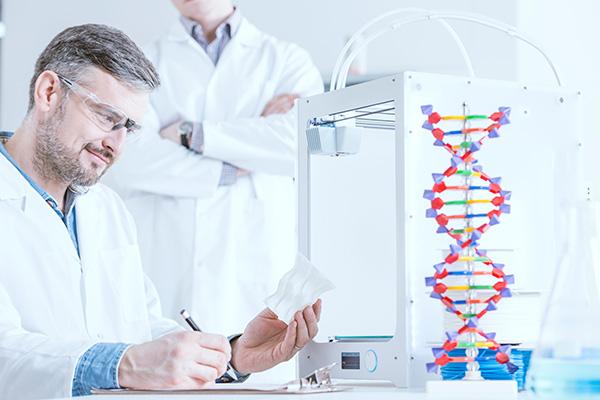Inside The World Of Longevity Medicine And How It Helps Reverse Biological Aging

Introduction to the Modern Age of Longevity Medicine
In recent years, the quest to slow aging and live a longer, healthier life has given rise to longevity medicine. Unlike traditional healthcare that treats diseases when they appear, this emerging discipline focuses on detecting the earliest signs of deterioration and intervening before major health problems develop.
The concept centers on proactive health management using biological markers, gene expression, nutrition science, and high-tech medical tools. It’s changing how aging is understood—from an unavoidable decline to something that can be strategically managed.
How Longevity Medicine Views and Measures Aging
Aging is no longer just the number of birthdays someone has celebrated. Longevity medicine uses a concept called biological age—a more accurate measure of how well the body is functioning. This is based on lab-tested indicators like cellular repair ability, insulin sensitivity, immune strength, and detoxification performance.
These markers help healthcare providers identify which systems are aging faster and need targeted support. By addressing those early, the risk of age-related diseases like diabetes, cardiovascular issues, and dementia can be greatly reduced.
Core Therapies Used in Longevity Protocols
At the center of many longevity protocols are therapies designed to regenerate, repair, and replenish. These include platelet-rich plasma therapy, red light therapy, hyperbaric oxygen sessions, and cryotherapy. Each technique targets inflammation, mitochondrial repair, or tissue regeneration.
Peptide treatments are becoming more common, aiding in sleep, metabolism, and collagen production. Bioidentical hormone therapy also plays a vital role in maintaining muscle mass, skin elasticity, and sexual function as individuals grow older.
Nutrition and Longevity: More Than Just a Diet
Longevity medicine does not promote one-size-fits-all eating plans. Instead, it emphasizes eating for metabolic flexibility and cellular health. This may include cycles of ketogenic eating, fasting-mimicking diets, or Mediterranean approaches, depending on the patient’s metabolic profile and genetic data.
The use of nutraceuticals, such as resveratrol, quercetin, astaxanthin, and NAD+ boosters, enhances cellular efficiency and reduces age-related cellular damage. These additions, when used under medical supervision, strengthen the body’s defenses against internal and environmental stress.
Cognitive Optimization and Longevity
Mental performance often declines with age, but it doesn’t have to. Brain optimization strategies include cognitive testing, stress reduction practices, nootropic supplements, and even transcranial stimulation techniques.
These tools support neurogenesis, neurotransmitter function, and brain plasticity. Addressing cognitive health is essential, as mental sharpness and emotional regulation influence overall well-being and independence in aging individuals.
Sleep, Recovery, and Biological Regeneration
Sleep is where much of the body’s repair and regeneration takes place. Longevity medicine takes sleep seriously, using tracking devices and hormone panels to assess quality and depth. Melatonin production, cortisol rhythms, and breathing patterns are all optimized.
If sleep is poor, the entire anti-aging system struggles to function properly. Correcting sleep-related issues can lead to improvements in energy, metabolism, skin appearance, and mental clarity within weeks.
Movement and Exercise as Age-Defying Tools
Movement fuels longevity. Exercise helps reduce inflammation, increase cellular oxygenation, and trigger growth hormone release. But too much or the wrong type can backfire.
In longevity medicine, exercise is customized. Professionals design programs that may include resistance training, interval workouts, yoga, or mobility drills based on body composition scans, joint health, and cardiovascular endurance tests.
The Role of Detoxification in Age Management
The body’s ability to remove waste and environmental toxins diminishes with age. Accumulated heavy metals, pesticides, and plastics can impair cellular processes. Longevity strategies often involve detoxification through sauna therapy, IV chelation, liver-supportive herbs, and lymphatic drainage techniques.
When detoxification improves, inflammation decreases and energy levels return. It’s a crucial but often overlooked piece of the anti-aging puzzle.
Conclusion
Longevity medicine is paving the way for a new era of healthcare where the goal is not just to live longer, but to live better. By integrating science, data, and personalized care, this approach offers a realistic path to preserving youthfulness, health, and vitality well into later years. It encourages each person to become an active participant in their wellness journey and take charge of their future aging process. In doing so, longevity medicine doesn’t just extend life—it enhances it.
- Art
- Causes
- Crafts
- Dance
- Drinks
- Film
- Fitness
- Food
- Games
- Gardening
- Health
- Home
- Literature
- Music
- Networking
- Other
- Party
- Religion
- Shopping
- Sports
- Theater
- Wellness
- IT, Cloud, Software and Technology


